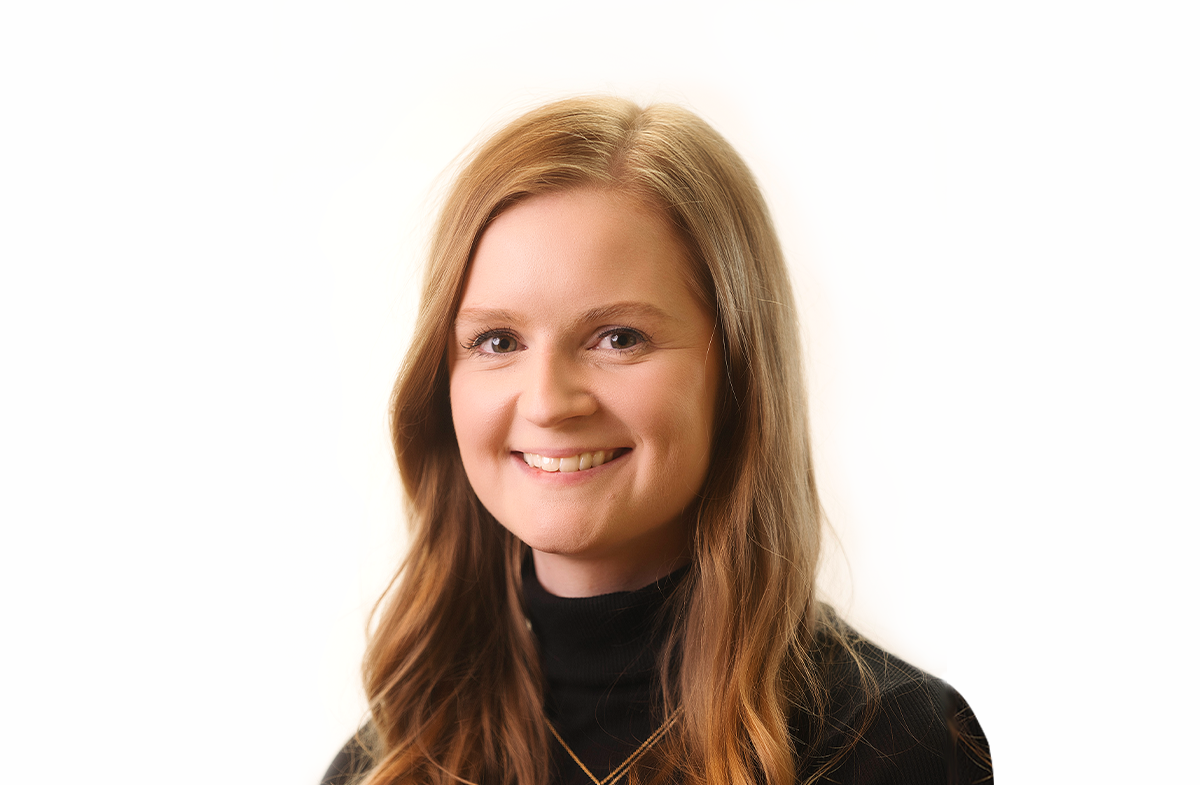
Tell us a little more about yourself, Bethany
Hi, my name is Bethany, I’m 25 and originally from Lisburn. I’ve always been interested in science which led me to study Cell Biology at the University of St Andrews in Scotland. In my first year I also took Psychology and ended up combining the two and graduating with a degree in Neuroscience.
After completing a Master’s in Animal Behaviour at Edinburgh University, I decided it was time to move back to Northern Ireland and now live in Moira with my boyfriend Ross and our cocker spaniel Oscar. On my days off you can usually find me somewhere in the Mourne Mountains with them both!
Can you tell us about your time at B-Secur to date and what your responsibilities and duties consist of?
I started with B-Secur in January last year. It definitely hasn’t been the most traditional first year! I started working as a data analyst as part of the data team however, after 2 months the COVID-19 pandemic hit. Like everyone else, I had to adjust to working from home and was also on furlough for a couple of months.
This made it a lot slower and harder to pick things up but I was definitely in a great team that helped me! Despite the challenges I feel I had a really good foundation to build on.
A few months later, I was offered the chance to move into a new role within the hardware team. My day to day now consists of testing the ECG signal quality obtained from electrodes of different materials, sizes and conditions to help develop our hardware and provide evidence behind our electrode design recommendations. I am also involved with testing and analysis as part of our professional services.
How did you become a Science Researcher at B-Secur? Why did B-Secur – a tech start-up appeal to you?
After being asked to do some testing for the hardware team comparing different electrode materials and from there was offered a secondment to carry on in this new role. I was able to use some of the skills I had built while working in the data team e.g. planning and carrying out data collections as well as writing detailed reports.
I love that within B-Secur, you get the chance to work across multiple teams in new areas, which may not be possible in bigger companies. I might not have been given the chance to ever work in a role like this elsewhere.
Due to B-Secur’s origins as a start-up, it’s a company where everyone is so passionate about the technology which promotes creativity and innovation. I love the freedom I have to work on a new research area or testing method.
Why is your research important? What are the possible real world applications?
Research and testing at any stage of the signal chain is so important, particularly for biometric devices used in health and wellness monitoring, an area that is becoming more and more in demand. Providing accurate data is key to avoid unnecessary stress to the user.
Electrode development is at the beginning of the signal chain but is no less important. Maintaining low noise levels at the skin-electrode interface over a wide range of skin types will provide the best signal for our algorithms to work on. Increased knowledge of electrodes will contribute to the performance of the end device.
This month we’re celebrating International Women’s Day with the theme of #choosetochallenge. As a member of the Hardware team, a typically male dominated industry, what has been your experience in science?
I’m proud to be working in science! Although I’ve only been working as part of the hardware team for a short time, and a lot of this has been spent working from home due to the pandemic, I was quickly welcomed into the team. I have been supported throughout my time at B-Secur and encouraged to learn and develop myself in whatever role best suits me.
Since joining the Hardware team you have been responsible for testing, delivering comparison analysis and reporting on electrode development for B-Secur and external partners, can you share any challenges you have encountered and overcome in such a short time?
Apart from the pandemic, I think the biggest challenge has been trying to fine tune hardware which has already been tested and developed to such a high standard! Testing and improving at this stage is often about noticing small changes in the raw ECG signal quality and linking back to a change in skin or testing condition which is definitely challenging.
Accounting for any small variables that might have an effect is difficult, something as simple as washing your hands may have an effect on the condition of your skin which translates into the ECG signal. Controlling all of these variables takes a solid test plan and very methodical work to allow fair comparison testing.
As you look ahead in the next several years, what do you see next for B-Secur?
All of this research is vital to our understanding of electrodes. Dry electrodes are a relatively new area of research and we are learning more every day through the testing we are carrying out. B-Secur is already being recognised as a leading company in their knowledge of this area and I think it can only go up from here.
Personally, I find research so rewarding and motivating to keep building on the knowledge I have. I still have so much to learn and I’m excited to see where this role takes me.